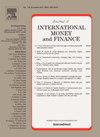Current account dynamics and saving-investment nexus in a changing and uncertain world
IF 2.8
2区 经济学
Q2 BUSINESS, FINANCE
引用次数: 0
Abstract
We re‐examine the determinants of current account balances (CAB) and the saving-investment nexus with focus on emerging market and developing economies (EMDEs). We are in a new age in terms of facing not just economic challenges but also other non-economic challenges such as global climate changes, increasing natural disasters, and wars. We face the need to reexamine the determinants of CAB along with national saving and investment. We first take an event study approach, examining how these variables have evolved historically in the wake of wars, natural disasters, and pandemics. The second is a cross‐country panel investigation of CAB, national saving, and of investment. In the presence of global financial instability, EMDEs tend to experience an improvement in CAB due to a fall in investment. A rise in oil prices increases both national saving and investment, but the change in investment is greater than the change in national saving, which worsens CAB. Contractionary monetary policy by the U.S. Federal Reserve Board tends to lower both national saving and investment, but the impact on CAB is not statistically different from zero. The more frequently a country experiences wars, on average, its CAB tends to improve. When a climatological or geographical disaster happens, all of its CAB, national saving, and investment tend to improve. A rise in the level of U.S. monetary policy uncertainty leads to an improvement in CAB, mainly due to a fall in investment.
在一个不断变化和不确定的世界中,经常账户动态和储蓄-投资关系
我们重新审视了经常账户余额(CAB)和储蓄-投资关系的决定因素,重点关注新兴市场和发展中经济体(EMDEs)。我们正处于一个新时代,不仅面临经济挑战,还面临其他非经济挑战,如全球气候变化、自然灾害增加和战争。我们需要重新审视CAB的决定因素,以及国民储蓄和投资。我们首先采用事件研究方法,研究这些变量在战争、自然灾害和流行病之后是如何演变的。第二部分是对CAB、国民储蓄和投资的跨国面板调查。在全球金融不稳定的情况下,由于投资下降,新兴市场和发展中国家的资本状况往往会有所改善。油价上涨会增加国民储蓄和投资,但投资的变化大于国民储蓄的变化,这使CAB恶化。美国联邦储备委员会的紧缩货币政策往往会降低国民储蓄和投资,但对CAB的影响在统计上接近于零。平均而言,一个国家经历战争的频率越高,其CAB就越趋于改善。当气候或地理灾害发生时,其所有的CAB、国民储蓄和投资都趋于改善。美国货币政策不确定性水平的上升导致CAB的改善,主要是由于投资的下降。
本文章由计算机程序翻译,如有差异,请以英文原文为准。
求助全文
约1分钟内获得全文
求助全文
来源期刊

Journal of International Money and Finance
BUSINESS, FINANCE-
CiteScore
4.20
自引率
4.00%
发文量
141
期刊介绍:
Since its launch in 1982, Journal of International Money and Finance has built up a solid reputation as a high quality scholarly journal devoted to theoretical and empirical research in the fields of international monetary economics, international finance, and the rapidly developing overlap area between the two. Researchers in these areas, and financial market professionals too, pay attention to the articles that the journal publishes. Authors published in the journal are in the forefront of scholarly research on exchange rate behaviour, foreign exchange options, international capital markets, international monetary and fiscal policy, international transmission and related questions.
 求助内容:
求助内容: 应助结果提醒方式:
应助结果提醒方式:


